Continuing the 7th Session of the 15th National Assembly, on the afternoon of June 17, the National Assembly listened to the Presentation and Review Report of the draft Law on Value Added Tax (amended).
It is necessary to specify the threshold of revenue that is not subject to VAT.
On behalf of the Government, Minister of Finance Ho Duc Phoc said that the draft Law consists of 04 Chapters and 18 Articles, basically inherited from the current Law but has been adjusted and supplemented to be consistent with the policy content. Accordingly, the draft Law retains the provisions of 05 Articles of the current Law; Amends and supplements the provisions of 11 Articles of the current Law; Adds 01 Article regulating the time of determining VAT and 01 Article regulating prohibited acts.
 |
| Minister of Finance Ho Duc Phoc |
Presenting the Report on the review of the draft Law, Chairman of the National Assembly's Finance and Budget Committee Le Quang Manh said that the Finance and Budget Committee agreed on the necessity of amending the Law to address practical shortcomings as well as perfect the tax policy, in line with the goals set out in the Tax System Reform Strategy to 2030.
Regarding cases where output VAT is not payable but input VAT is deductible. The draft Law currently stipulates that output tax is not calculated but input tax is deductible for unprocessed agricultural, forestry and fishery products. Currently, the transfer of investment projects and some other cases are also being applied with a similar mechanism. The Committee for Economic Affairs requests the Drafting Agency to clarify the arguments and legal basis of these regulations.
Regarding the level of revenue not subject to VAT, the draft amended Law stipulates that the annual revenue level from 100 million VND or less is not subject to VAT (according to the provisions of the current Law) as "below the level prescribed by the Government". The Committee for Economic Affairs believes that amending and adjusting the regulations on the threshold of annual revenue not subject to VAT is necessary to suit the current socio-economic development reality, but it needs to be specifically stipulated in the Law to establish a clear legal basis.
Review regulations for small value imported goods
The draft Law supplements regulations on gifts, presents, movable assets, and border goods within the import tax exemption limit according to the law on export tax and import tax that are not subject to VAT.
Although not stipulated in the Law, in practice, VAT exemption associated with import tax exemption is also applied to imported goods with a value of less than 1 million VND sent via express delivery (according to Decision No. 78/2010/QD-TTg).
The audit report said that with the boom of cross-border e-commerce, the volume of small-value cross-border goods transactions has increased many times in recent times. In Vietnam, every day, an average of 4-5 million small-value orders are shipped from China to Vietnam via Shopee, Lazada, Tiki, TikTok, etc.
On the other hand, many countries have abolished the VAT exemption for imported goods of small value to protect revenue sources and create an equal business environment between domestically produced and imported goods. Therefore, the Committee for Economic Affairs recommends that the Government have appropriate policies to expand and cover revenue sources in the context of current budget constraints, and explain the legal basis of Decision No. 78/2010/QD-TTg for the above content.
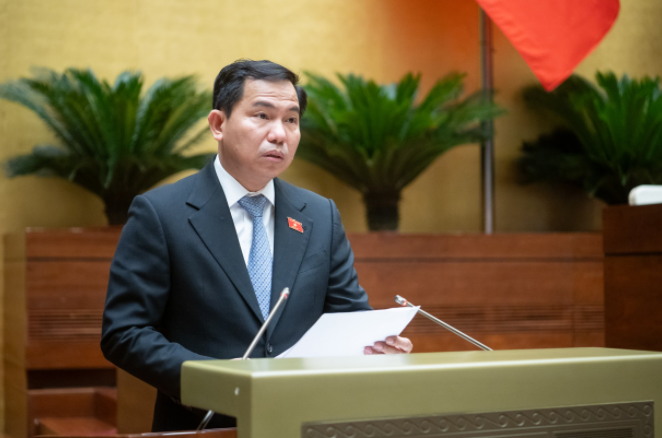 |
| Chairman of the National Assembly Committee Le Quang Manh |
Regarding tax rates, the draft Law transfers fertilizers, offshore fishing vessels, specialized machinery and equipment for agricultural production from non-taxable goods to goods subject to a tax rate of 5%.
Regarding this content, there are currently two opinions in the TCNS Committee: (i) One opinion agrees with the content of the draft Law to resolve the long-standing problems and inadequacies of the current VAT policy for domestic production industries of these goods; (ii) One opinion disagrees with the Government's proposal and believes that applying a 5% tax rate will increase input costs of agricultural production, increase product prices, and reduce the competitiveness of domestic agricultural products.
“The Committee for National Agriculture and Rural Development recommends that the Government carefully assess and report more fully on the impact of this policy amendment, from the perspective of impact on domestic production sectors as well as from the perspective of impact on farmers,” said Chairman of the Committee for National Agriculture and Rural Development Le Quang Manh.
According to the Audit Report, the current general tax rate of 10% in Vietnam is lower than that of other countries in the region and the world (the average tax rate in Asia is 12%, Latin America is 14%, Africa is 16%, OECD is 19%, EU is 22%, the current global average tax rate is 15%), showing that Vietnam has room to increase the VAT rate, especially in the context of needing to expand the revenue base. Currently, some countries in the ASEAN region have been increasing VAT rates as a solution to improve budget collection efficiency since the pandemic.
The tax system reform strategy until 2030 has also identified the orientation of “researching to increase VAT rates according to a roadmap”. Therefore, the TCNS Committee recommends that the Government assess the impact of some options to increase tax rates according to a roadmap to consider the possibility of stipulating a roadmap for increasing tax rates in the draft Law appropriately, after the economy has recovered, possibly at the end of the 5-year period 2026-2030.
Notably, regarding the provisions on tax refund cases, the draft Law removes the provision on pre-refund and post-inspection for cases where taxpayers are compliant and not high-risk. However, the Tax Administration Committee believes that the VAT Law is a policy law, and it is necessary to have provisions on the principle of allowing pre-refund and post-inspection for cases where taxpayers are highly compliant and pre-inspection and post-refund for high-risk cases. On that basis, the law on tax administration will specify the criteria for classifying taxpayers based on risk management contents to determine the dossiers that can be refunded before being inspected and the dossiers that need to be inspected before refund, ensuring consistency and synchronization between the law on tax policy and tax administration. Therefore, it is recommended that these provisions should not be removed but should be completed in the draft Law.Source: https://thoibaonganhang.vn/du-an-luat-thue-gia-tri-gia-tang-sua-doi-gom-4-chuong-18-dieu-152666.html


![[Photo] General Secretary concludes visit to Azerbaijan, departs for visit to Russian Federation](https://vphoto.vietnam.vn/thumb/1200x675/vietnam/resource/IMAGE/2025/5/8/7a135ad280314b66917ad278ce0e26fa)
![[Photo] President Luong Cuong presents the decision to appoint Deputy Head of the Office of the President](https://vphoto.vietnam.vn/thumb/1200x675/vietnam/resource/IMAGE/2025/5/8/501f8ee192f3476ab9f7579c57b423ad)
![[Photo] National Assembly Chairman Tran Thanh Man chairs the meeting of the Subcommittee on Documents of the First National Assembly Party Congress](https://vphoto.vietnam.vn/thumb/1200x675/vietnam/resource/IMAGE/2025/5/8/72b19a73d94a4affab411fd8c87f4f8d)
![[Photo] Prime Minister Pham Minh Chinh meets with the Policy Advisory Council on Private Economic Development](https://vphoto.vietnam.vn/thumb/1200x675/vietnam/resource/IMAGE/2025/5/8/387da60b85cc489ab2aed8442fc3b14a)

![[Photo] General Secretary To Lam begins official visit to Russia and attends the 80th Anniversary of Victory over Fascism](https://vphoto.vietnam.vn/thumb/1200x675/vietnam/resource/IMAGE/2025/5/8/5d2566d7f67d4a1e9b88bc677831ec9d)
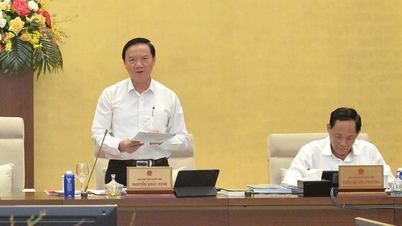


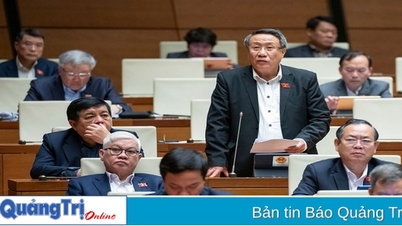





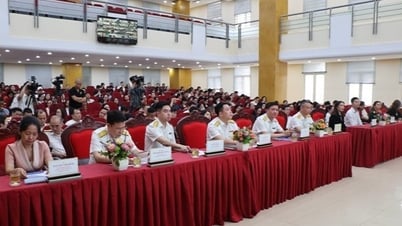








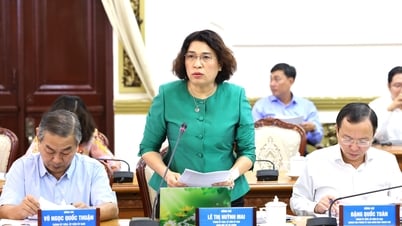

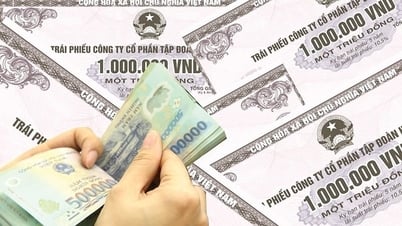
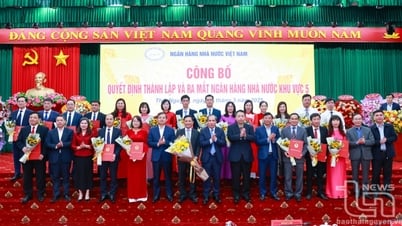


































![[Photo] Prime Minister Pham Minh Chinh talks on the phone with Singaporean Prime Minister Lawrence Wong](https://vphoto.vietnam.vn/thumb/402x226/vietnam/resource/IMAGE/2025/5/8/e2eab082d9bc4fc4a360b28fa0ab94de)












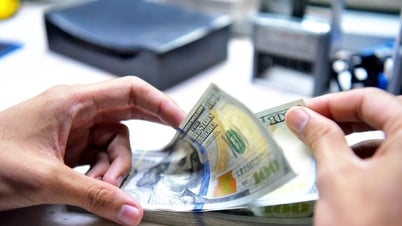


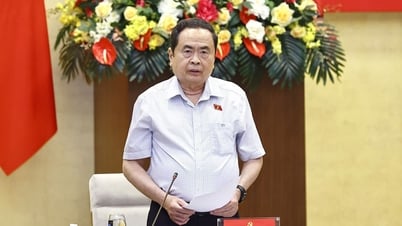

















Comment (0)